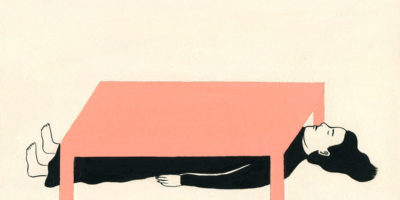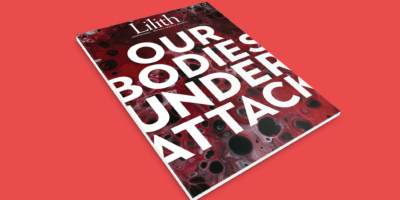
Letter from a Namesake to My Ancestor
Dear Jennie,
Despite our shared name, your life and death were clarified for me only in college, when I started to develop a vocabulary for seeing the world through gender, power, class, suffering and solidarity. I began to realize that the way my family had passively glorified your story as one of dire poverty alone missed several crucial, intersecting points—your gender, the drive to control the female body, autonomy, motherhood, the value of a life, and the devastation of death and desperation. No one mentioned until recently, at least to my knowledge, that you likely struggled with depression. Me, too.
It’s easy to wonder if your death was not just death but a form of suicide, or if that categorical distinction even applies to situations like yours. “They listed the cause of death as peritonitis,” your grandson (my father) still hints with his face wide open, the supraorbital ridge of his brow lifting at the thought of that cruel, medical pseudonym for failed self-abortion with a wire hanger.
Great-Grandma Jennie, state after state is criminalizing abortion after six weeks. Democrats and Republicans alike are calling these heartbeat bills, but the “detection of a fetal heartbeat” is misleading—no heart is fully formed at six weeks; what’s detected are only the cells that will later form the heart, already at work, “beating” as per their design. The bills will be challenged in the courts, in the most supreme of which conservatives hope to puncture the provisions of Roe vs. Wade. That’s a Supreme Court decision that made it possible, in 1973, for me to do what you couldn’t in 1922—safely and legally have an abortion in the care of a medical doctor—regardless of where in America our family ended up. Of course, there are states where “possible” still means improbable, and entire American counties where doctors to care for bodies like mine and yours are nowhere to be found. Not that anyone in the direct line from you to me ever left New York for more than a few months.
You’ve crossed my mind more and more over the last several years, as my body pulls me through my reproductive prime and we continue to grow closer and closer in age. You were no more than 10 years older than I am now, newly 25, when you faced the ultimate consequence of your systematically enforced limitations of agency, resources, care and equality. Lately now more than ever, when the possibility of death caused by unsafe abortions is raised—in classrooms, online, in everyday conversation—I bristle at the knowledge of you.
Because of you, I know the perpetual urgency of safeguarding women’s autonomy. I hear the dire importance of maintaining control over my body in my own name. I see the future of many women heading back into the past, with you, because your life and the lives of women need constant illumination, so as not to be left in the dark, forgotten before we are even gone.
Love, Jamie
Jamie Zabinsky is a PhD student in English at the CUNY Graduate Center, where her interests include women’s memoir and feminist theory.



